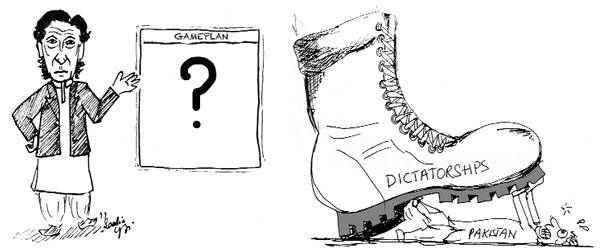
Gas greed
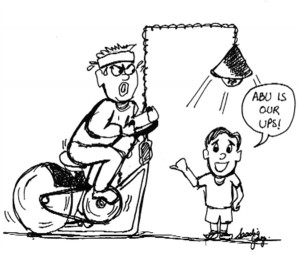
Sir,
The people of Pakistan are paying for the greed of their corrupt political elite and establishment who have made the lives of ordinary citizens an unending misery, because they know they will not be held accountable. These financial terrorists have wreaked a havoc with the unfortunate citizens of Pakistan, inflicted by a booming criminal economy run by terrorists and criminals who are killing and abducting innocent citizens while the state looks the other way.
Can anybody justify permission to such a large number of CNG stations, knowing full well that gas reserves are depleting? Many of them were given permissions to run fuel stations after a ban had been imposed on such licenses, while millions of kitchens closed. Thousands of fatal accidents involving explosions of gas cylinders has not moved our government, whose heart melts for traders involved in massive gas theft. Rickshaws and taxis fitted with substandard CNG cylinders have been charging passengers fares based on petrol prices, yet the state does not seem to be bothered.
In a country where hundreds of small run-of-the-river dams could be built to make cheap affordable electricity, vested interests gave permission for expensive rental power producers using expensive thermal generation based on imported furnace or diesel oil. As the crisis worsens and we become more dependent on these independent power produces, deals with them become increasingly expensive, based on their self-evaluated production ceiling instead of the actual power supplied.
Half of the top bureaucracy, both civil and uniformed, migrate immediately after retirement to countries whose immigration they acquire. Across the political divide, there is hardly anyone in our ruling elite whose children or assets are located in Pakistan, which explains unchecked institutionalized corruption. As long as the fate of Pakistan is decided by those who have no stakes in this country, the chaos and cancer of terrorism may be hard to contain.
Jalil Anwar,
Lahore.
Give peace a chance
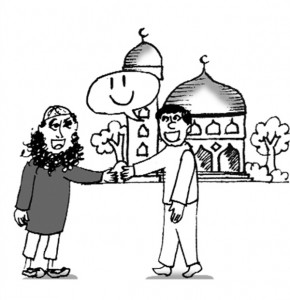
Sir,
Sectarian violence is rapidly increasing in Pakistan. Hundreds of thousands of people are killed in sectarian violence and the minorities live under a constant threat.
The most deadly sectarian terrorist attacks so far have been against people of the Shia faith, by groups such as Lashkar-e-Jhangvi, Sipah-e-Sahaba, and Tehrik-e-Taliban Pakistan. But these and other groups also target mosques, shrines and places of worship of people of other faith as well.
Unfortunately, the country became a hub of inter-sect disharmony as foreign forces began to offer financial and logistic support to Pakistani religious groups as they competed for influence in the Muslim world. These forces were also involved in promoting sectarian-based madrassas in Pakistan. During the last two decades, a remarkable increase has been witnessed in sectarian based terrorism, and clashes between groups have resulted in the killing of thousands, from common people, to state functionaries, to religious leaders.
This vicious cycle of killings should be condemned by the entire nation. Religious leaders should play their role in creating harmony among people of various faiths and sects. The political leadership of the country should join hands to take measures to deal with the greatest internal security threat to Pakistan in its history, by restraining the elements that creates disharmony among various sections of the society. The government should bring madrassa reforms by removing hate material from the curriculum for the sake of sectarian harmony in the country. It should also make changes in the textbooks of schools and colleges to promote peace and harmony in the society.
Ayesha Ahsan,
Rawalpindi.
Jinnah’s Pakistan
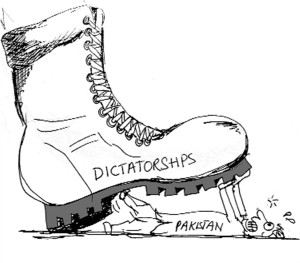
Sir,
The fateful day of December 16, 1971 should have woken us up from our slumber and made us realize that if Pakistan had adopted a constitution based on Jinnah’s vision of a modern democratic welfare state and Ayub Khan had not imposed a martial law, Pakistan would not have been dismembered, and it would not have been in chaos today. What this country desperately needs to become is the real Pakistan of Quaid-e-Azam, not the ‘enlightened’ Pakistan of Musharraf, not the fundamentalist Pakistan of Zia, and not the Naya Pakistan promised by Imran Khan.
In Jinnah’s Pakistan, there was no role of civil or military bureaucracy in politics, and no tolerance for corruption, bribery or black marketing. Jinnah wanted the state to cater to the welfare of the most deprived and the development of human resource, not to become hostage to the insatiable greed for land by paid or elected public office holders.
We had no right to question the loyalty and commitment of former East Pakistanis, who chose to vote for Fatima Jinnah in 1962 and rejected a dictator in spite of their displeasure over the adoption of Urdu as national language although it was spoken by a minority.
Ayub Khan was the pioneer of rigging elections, held in his own engineered Basic Democracy system. We forget that Fatima Jinnah died under mysterious circumstances, and no post postmortem was carried out, nor any investigations conducted. The last nail in Pakistan’s coffin was the refusal by Yahya Khan to accept the majority’s verdict in the 1970 national elections.
Our salvation lies in adhering to Jinnah’s concept of a democratic welfare state, where all citizens enjoy equal rights, opportunities and justice through equality, with no private militias allowed and everybody accountable before law.
Ali Malik,
Lahore.
Back to basics – I
Sir,
Education plays a very important role in the society. It is the foundation of a civilized society. Our actions are based on our knowledge and learning which we get from our education. it indulges us into a process of continuous analysis. Our minds have the capacity to learn constantly, but many of us are not able do so. The biggest reason for that is socioeconomic hurdles.
Education also helps an individual attain a position, status and respect in the society. It provides the skills, abilities and knowledge which are necessary to compete in the professional life. Education is a compulsion for a successful and healthy society and it affect every aspect of our lives.
Ayesha Saeed,
Lahore.
Back to basics – II
Sir,
Education establishes one’s position in the society. It empowers you. It builds confidence in an individual to face different situations. It tells you about the rules and regulations of a society and makes you capable of questioning the system and its faults. It makes you a powerful member of the society, and you can contribute to improving and even bringing a change in your existing system.
It makes you understand your economy and its functioning so in a way education brings development. It not just brings betterment to a society but also grooms the personalities of individuals. It makes them realize their talents and helps to polish their skills. It is a necessity for a good quality life.
Abeeha Imran,
Lahore.
Back to basics – III
Sir,
Education provides us degree and qualification on the basis of which we get employment and earn a living. It allows social mobility within classes, for example people from the lower class can move in the upper class if they have degrees with high scope and are earning a handsome amount of money because of that. It makes you independent and financially stable and this empowers you.
When an individual starts earning by himself, he/she realizes the value of money and a sense of pride develops in them. The higher qualification a person has, the more they will earn. Hence we can say that education is affecting every aspect of our live and is very important.
M Waqas,
Lahore.
Back to basics – IV
Sir,
Education is very closely related to how individuals perform in a society. Employers always look for highly skilled people because they are more efficient. Education teaches one how to deal with different organizational situations, emergencies and contingencies. It enhances our knowledge and makes us able to contribute new ideas for the success of the organization.
The core of my argument is that education not only grooms an individual but also helps make an organization successful. Educated employees lead to a more productive labor force and this is beneficial for our industries.
Waleed Ahmad,
Lahore.
No clue
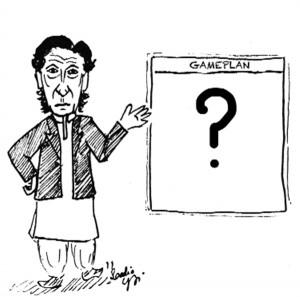
Sir,
Imran Khan claims to build ‘Naya Pakistan’, however, he has not provided practical solutions to complex internal and external challenges of Pakistan. He does not seem to have a tangible blueprint of his ‘Naya Pakistan’.
After the 18th amendment, the provinces have the authority to do many things for peoples’ welfare but the PTI has not delivered what it had promised to the people of Khyber Pakhtunkhwa before the elections. With the current state of affairs Khyber Pakhtunkhwa is not likely to become a model province that Imran can showcase as an example of his ‘Naya Pakistan’.
Imran is politically isolated, even Jaamat-e-Islami emir Sirajul Haq disagrees with Imran’s approach and strategy. Nonetheless, despite Imran’s shortcomings a lot of people still believe in him.
The PTI seems to be gaining support in the province of Punjab and Karachi. Imran has successfully discredited Nawaz Sharif. He has highlighted issues and problems which ordinary people of Punjab and Karachi face and so do the public in the rest of Pakistan, including Khyber Pakhtukhwa.
Imran is saying what people want to hear. However, the public also want their problems resolved. And this is the issue. He has identified problems but he does not have clear and concrete solutions.
Shiraz Paracha,
Islamabad.
Ground rules

Sir,
Setting ground rules during a conflict provides a peaceful environment for productive negotiation. An organization has diverse groups of people who are involved in conducting various business processes. Managers have to face different types of conflict, between two employees, among groups or between departments.
Ground rules may help analyse disputant behavior, and help mediators make fair decisions. Behavioral ground rules say that people must talk one at a time; they should listen carefully to their opponents’ statement, and treat each other with respect. Ground rules on the intermediary’s role in mediation or consensus building might include the idea that the intermediary will set an agenda for each day’s meetings, which needs to be approved by the parties, and that the intermediary will lead the discussion, giving each party an equal amount of time to talk. Process ground rules for mediation might say that people are expected to be on time for meetings, that substitute representatives must be approved before the meeting happens, and that observers are (or are not) allowed. Finally, significant ground rules will define which topics are to be covered, and which not.
When the disputants are familiar with each other, and with the process, such ground rules may simply be assumed. If the disputants have not worked together before, however, or are not familiar with the process, clear ground rules can be very helpful in focusing the discussions in a productive way and preventing the process from becoming side-tracked by unnecessary procedural arguments.
Jahangir Khan,
Lahore.
Battle for Pakistan – I
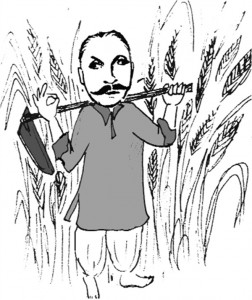
Sir,
Terrorists threaten our way of life, killing innocent children, men women and elderly, obstructing polio vaccination, blowing up schools and colleges, and attacking our sensitive defense infrastructure, and yet they have apologists within our own rank and file. It took us over 12 years to stand up and face the enemy, only after the appointment of Gen Raheel Sharif as the army chief. Once the military operation has accomplished its task, the more difficult phase begins – to put in place a more credible system of justice and governance to fill the void in the tribal areas, instead of the existing corruption-riddled system of political agents.
Whether we like it or not, this is collective failure of political, security and surveillance agencies, whose negligence and policies have allowed the Taliban a sanctuary in our motherland. Responsibility lies on the shoulders of those who crafted our security and foreign policy, and their myopic vision which failed to foresee the backlash of their mistakes. Our foreign and internal security policies need to be re-evaluated and so does the competence, qualifications, and professional skills of those who were tasked to frame them. Our free media also failed, by focusing on political squabbles instead of the increasing extremism and terrorism.
It is time the sacred soil of Pakistan close its doors to foreign mercenaries, punish the officials and agencies responsible for their entry, and question those who knew where they resided but failed to use full force of state power to eliminate private militias.
Our intelligence agencies must disband their political wings and confine their energies to combating terrorism and threats from across our borders. Only the writ of law and supremacy of the constitution can make Pakistan secure for its children to go to school.
We do not have a choice. If we do no eliminate them, they will eliminate us, or force us to lead our lives in accordance with their distorted version of religion, which has nothing in common with the teachings of Islam. Let us pledge never to allow anybody like Ziaul Haq to sow seeds of terrorism in this country again.
Malik Tariq,
Lahore.
Battle for Pakistan – II
Sir,
There is a growing trend these days of carrying out candle-lit vigils every time we are struck by tragedy. These vigils take place at on specific places – Kohsar Market in Islamabad, Liberty Chowk in Lahore, and Teen Talwar in Karachi – and are attended by specific people.
I do not oppose these vigils, but I want to question their usefulness. Coming out to light candles one day is not enough. We need to strive every day against those who live in our society but their hearts beat with terrorists. They are silent supporters of those who kill our children. Why don’t we hold vigils outside the mosques and madrassas that support and promote terrorism? Why don’t we hold vigils outside the Central Jail in Karachi to pressure the government to hang terrorists? We only want to hold brief protests in secured areas because we do not want to be killed.
Not too long ago, a boy named Aitzaz Hasan died stopping a suicide attacker from blowing himself up in his school. He saved hundreds of his schoolmates. We held vigils and protests for him, but soon we forgot. If Malala were not being given international attention, we would have forgotten her too.
If we hadn’t forgotten the killing of the 127 Christians in an attack on a church in Peshawar, we would not have lost our children to this menace of terrorism.
Zameer Hassan Awan,
Karachi.

